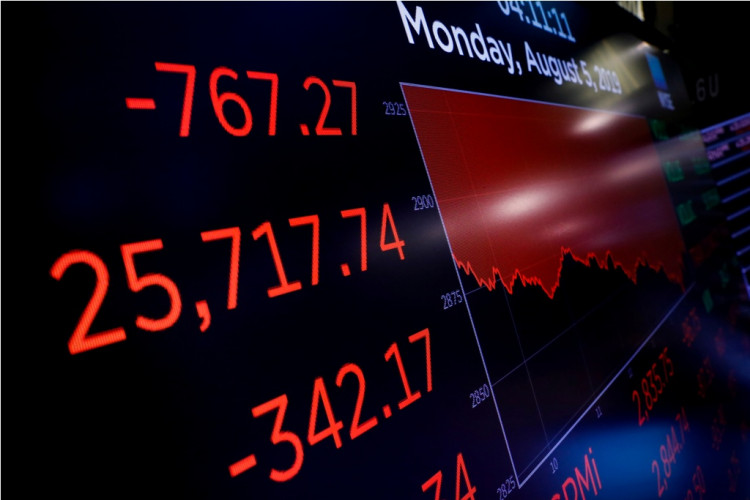Dow futures have recovered early Tuesday following the China central bank's announcement about stabilizing its currency. Nasdaq and S&P futures also hiked gradually during the Tuesday early morning session.
According to CNBC, Tuesday morning's indexes were very different from a day earlier, when the U.S. called China a "currency manipulator." However, it appears that stock markets are rallying for China's willingness towards stabilizing the Chinese yuan despite U.S. threats as Dow Jones futures bounced back over 200 points.
On Monday evening, the central bank of China moved to set the yuan at a point higher than the existing yuan-to-dollar trade set at seven. Since then, markets reacted calmly, pulling up stocks that saw their worst all throughout Monday's trading.
Monday was bad news for global stock markets. For U.S. equity markets, in particular, it was the worst trading day of the year as investors expressed fears over the possibility of a currency war given birth by the ongoing trade dispute.
While most markets have rebounded early Tuesday morning, economists and investment experts are still closely watching the movements of both Beijing and Washington. Economic analysts warned previously that U.S. President Donald Trump's final tariffs of 10 percent on $300 billion worth of Chinese goods would not play well with global stocks.
Finance experts have expressed disappointment over the Trump administration's continued threats to China despite the continuous drops in stocks and indexes around the world, especially in the U.S. and in Asia.
According to CNN, chief investment officer at Bleakley Advisory Group, Peter Boockvar, wrote in a note on Monday that the trade issue is getting out of control. He told clients that the tariff policies from the White House "failed miserably."
Chief market strategist at National Securities Corporation, Art Hogan, echoed Boockvar's sentiments. "The escalating US-China trade war will certainly be bad for the US economy. How bad is almost impossible to calculate," Hogan stressed.
Wall Street investors said last week that they felt "blindsided" by the U.S. president's unexpected move of announcing new tariffs, albeit smaller than the previous tax duties imposed on Chinese goods.
It is unclear if the two sides will meet sometime soon to negotiate the trade issues presented. However, many economists believe the trade war is far from over.
It's no longer just China and the U.S. involved in the stock market tumbling trend. Australian stock market was down Monday by 2.4 percent after Washington's China label. On the other hand, the yuan's stabilization is expected to pull up Australian shares as American indexes begin to calm down.





